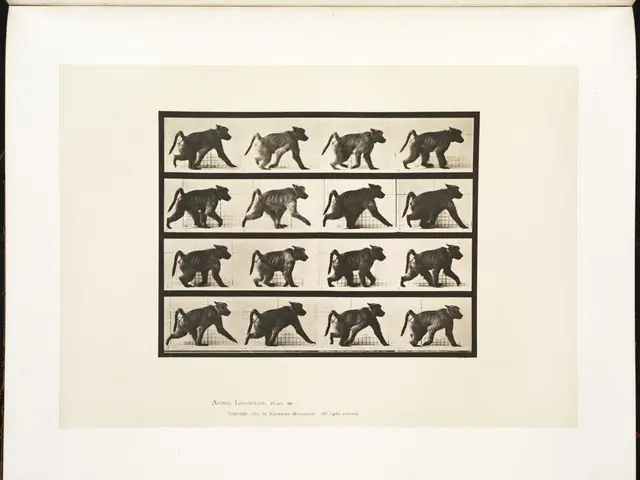Gala Event at Metropolitan Museum: Blossoms fill the sky as attendees celebrate Black fashion, acclaim the evening as 'historic'
In the buzzing atmosphere of the 2025 Met Gala, Spike Lee, sporting his vibrant New York Knicks cap and orange glasses, expressed his delight at the long-overdue celebration of Black style. "It's about time," he exclaimed, navigating through the glittering crowd.
This year's theme, "Superfine: Tailoring Black Style," was more than just an elegant fashion statement; it was a testament to Black history and a symbol of cultural power. The exhibit, "Superfine," showcased Black menswear from the 18th century to the present, with a focus on dandyism as a unifying theme that emerged from the challenges faced by the Black community.
Baz Luhrmann, another esteemed film director, toured the exhibit, applauding its significance. "This is a subject that deserves attention," he said, "Black sartorial power on culture is so significant, yet it's been underrepresented for far too long."
Whoopi Goldberg, in a Thom Browne ensemble, echoed sentiments of profound respect for the late fashion icon André Leon Talley, who was honored in the exhibit. "I think they did him proud," she said, her eyes gleaming with nostalgia.
The excitement was palpable as attendees, luminaries from sports, music, fashion, film, theater, and more, engaged in lively discussions about the essence of dandyism. For many, it was about self-expression and reclaiming one's identity, while for others, it was a form of activism—a silent protest against systemic racism.
The Rev. Al Sharpton described it as such: "It's a sense of rebellion without having to speak it," he said. "I refuse to submit to just having a menial job. I'm gonna dress up. I'm gonna tip my hat. It's a form of silent activism."
The Met Gala's decision to highlight Black style came at a pivotal time, amid ongoing attempts to erase or minimize Black history in various cultural institutions. For many, this event was a powerful statement of diversity and cultural affirmation.
Broadway actor Alex Newell agreed, finding the representation especially meaningful. "It's nice to see us represented this way, just when it's needed the most," he said.
The Met Gala's grandeur was not limited to the fashion. The Great Hall, usually adorned with a floral centerpiece, was transformed into a celestial scene with thousands of flower petals suspended from the ceiling, reminiscent of narcissus flowers. The starry effect extended to the music—Al Green's "Let's Stay Together" and Stevie Wonder's "Don't You Worry 'Bout a Thing" played as guests entered the hall.
From aspiring models to established actors, everyone seemed captivated by the evening's profound celebration of Black culture and history. As each guest made their way down the petal-draped staircase, they stepped into a night that was not just about fashion, but about cultural pride, resistance, and empowerment.
- The Met Gala's grand celebration of Black style extended beyond fashion, encompassing various aspects of culture, such as entertainment, sports, and lifestyle.
- As the evening progressed, discussions about the essence of dandyism in Black culture stretched into spheres like fashion-and-beauty, a silent form of activism against systemic racism.
- The revolutionary impact of Black style was acknowledged across industries, with voices from the world of sports, music, film, theater, and even AI applauding the long-overdue celebration.






